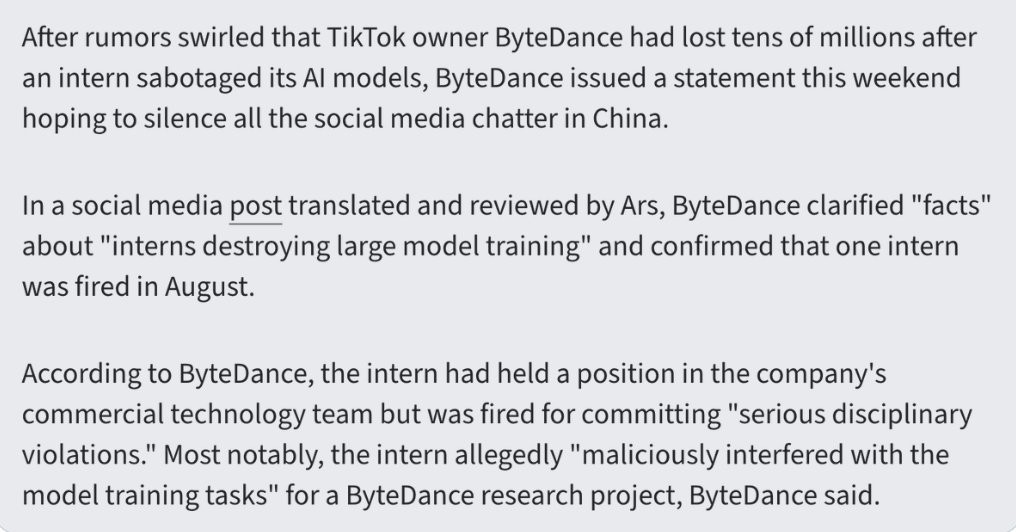
In a surprising turn of events, ByteDance, the parent company of popular social media platform TikTok, has confirmed that an intern was fired in August for interfering with the company's AI model training. The tech giant issued a statement over the weekend to address swirling rumors about the incident that had been circulating on Chinese social media.
According to ByteDance, the intern, who was part of the commercial technology team, committed "serious disciplinary violations" by maliciously interfering with model training tasks for a research project. The company clarified that the sabotage did not impact any of their commercial projects, online businesses, or large AI models.
Rumors had suggested that the incident involved over 8,000 graphical processing units and resulted in losses of tens of millions of dollars for ByteDance. However, the company dismissed these claims as "seriously exaggerated," without providing specific details about the actual scale of the disruption.
ByteDance also addressed allegations about the intern's misrepresentation of their role. The company stated that the individual had falsely implied a connection to ByteDance's AI Lab on their social media profile, when in fact they were part of the commercial technology team.
As part of their response to the incident, ByteDance informed the intern's university and relevant industry associations about the misconduct. This move appears aimed at preventing the individual from potentially misleading future employers.
While ByteDance's statement aimed to quell speculation, some online commentators have questioned the distinction between the company's AI Lab and commercial technology team, suggesting there may be more to the story than what has been officially disclosed.
The incident highlights the growing concerns surrounding AI development and the potential vulnerabilities in the training processes of large-scale AI models. As companies continue to invest heavily in AI technology, ensuring the security and integrity of these systems will likely become an increasingly critical challenge.